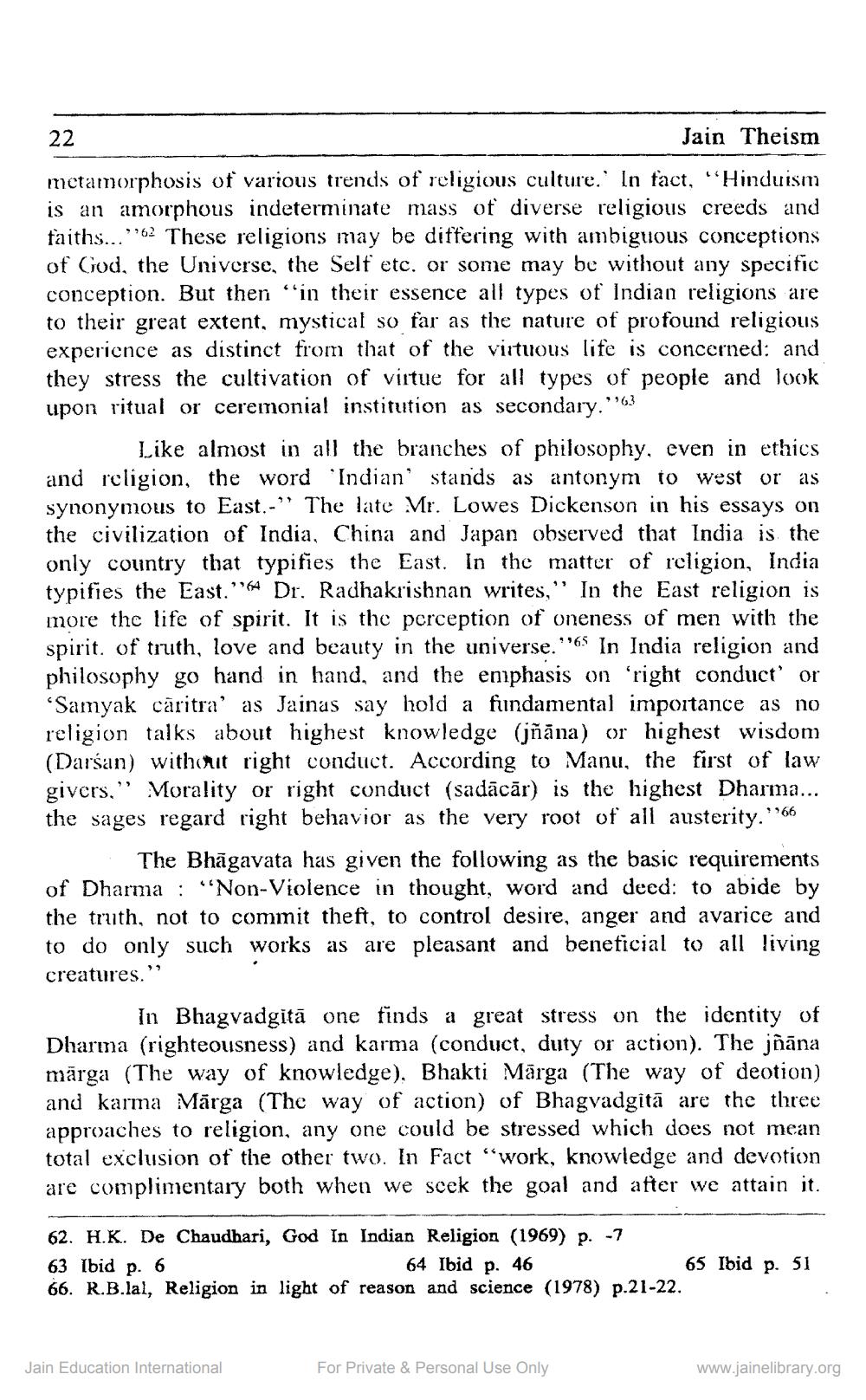________________
22
Jain Theism metamorphosis of various trends of religious culture.' In fact, “Hinduism is an amorphous indeterminate mass of diverse religious creeds and faiths..."62 These religions may be differing with ambiguous conceptions of God, the Universe, the Self etc. or some may be without any specific conception. But then “in their essence all types of Indian religions are
o their great extent, mystical so far as the nature of profound religious experience as distinct from that of the virtuous life is concerned: and they stress the cultivation of virtue for all types of people and look upon ritual or ceremonial institution as secondary:"6,3
Like almost in all the branches of philosophy, even in ethics and religion, the word 'Indian stands as antonym to west or as
to East.-" The late Mr. Lowes Dickenson in his essays on the civilization of India, China and Japan observed that India is the only country that typifies the East. In the matter of rcligion, India typifies the East.' Dr. Radhakrishnan writes," In the East religion is more the life of spirit. It is the perception of oneness of men with the spirit of truth, love and beauty in the universe.'65 In India religion and philosophy go hand in hand, and the enphasis on right conductor
Samyak caritra' as Jainas say hold a fundamental importance as no religion talks about highest knowledge (jñāna) or highest wisdom (Darśan) withonit right conduct. According to Manu, the first of law givers." Morality or right conduct (sadācār) is the highest Dharma... the sages regard right behavior as the very root of all austerity.'966
The Bhāgavata has given the following as the basic requirements of Dharma : “Non-Violence in thought, word and deed: to abide by the truth, not to commit theft, to control desire, anger and avarice and to do only such works as are pleasant and beneficial to all living creatures.'
In Bhagvadgitā one finds a great stress on the identity of Dharma (righteousness) and karma (conduct, duty or action). The jñāna mārga (The way of knowledge), Bhakti Mārga (The way of deotion) and karma Mārga (The way of action) of Bhagvadgitā are the three approaches to religion, any one could be stressed which does not mean total exclusion of the other two. In fact "work, knowledge and devotion are complimentary both when we scek the goal and after we attain it.
62. H.K. De Chaudhari, God In Indian Religion (1969) p. -7 63 Ibid p. 6
64 Ibid p. 46
65 Ibid p. 51 66. R.B.lal, Religion in light of reason and science (1978) p.21-22.
Jain Education International
For Private & Personal Use Only
www.jainelibrary.org




